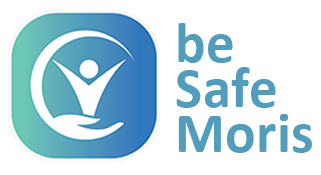What is COVID-19?
COVID-19 is the infectious disease caused by a coronavirus discovered in China in December 2019. Coronaviruses are a large family of viruses that can cause disease in humans and animals.
In humans, several coronaviruses can cause respiratory infections (from the common cold to more serious illnesses (for example: SARS / severe acute respiratory syndrome) and sometimes even the death of people with the virus.
The virus settles in the human body during a period called incubation: it is the time which passes between the infection and the appearance of the symptoms of the disease. The incubation period for COVID-19 is currently estimated to be 1 to 14 days and most often around five days.
How is COVID-19 spread?
COVID-19 is transmitted by people with the virus. The disease can be spread from person to person mainly by respiratory droplets expelled from the nose or mouth when a person coughs or sneezes.
These droplets can be found on objects or surfaces around the person in question. COVID-19 can then be contracted if you touch these objects or surfaces and then touch your eyes, nose or mouth.
COVID-19 can also be acquired by breathing droplets of a sick person who has just coughed or sneezed. This is why it is important to stand more than a meter from a sick person.
The risk of getting COVID-19 from someone who has no symptoms is very low. However, many people with the disease experience mild symptoms in the early stages of the disease (for example, a mild cough). It is then possible to contract COVID-19 through contact with these people, even if they do not feel sick.
COVID-19 Symptoms
Fever
Tiredness
Dry Cough
Stuffy nose
Sore Throat
Pains
Diarrhea
Very difficult breathing
What are the symptoms of COVID-19?
- The most common symptoms of COVID-19 are fever, fatigue, and a dry cough.
- However, some patients experience pain, congestion or runny nose, sore throat or diarrhea.
- These symptoms are generally mild and appear gradually. Some people can be infected without symptoms and feel good.
- About 80% of people recover without needing any special treatment.
- About 1 in 6 people with the disease have more severe symptoms, such as feeling short of air or abnormal shortness of breath.
- Seniors and those with other health conditions (high blood pressure, heart problems or diabetes) are more likely to have serious symptoms.
- EVERYONE WHO HAS FEVER, WHO Coughs, AND HAS DIFFICULTIES TO BREATHE MUST CONSULT A PHYSICIAN.
COVID-19 Precautions
Always cover coughing or sneezing
Do not touch public objects
Wear a mask if you have respiratory symptoms
Stay at least 1 meter away
Do not touch your eyes, nose and mouth
Staying home when you're sick
Wash your hands well
Should we wear a mask to protect ourselves?
Only health workers, caregivers, and people with respiratory symptoms (fever and cough) should wear a mask. Disposable masks are for single use. If you wear a mask when you are not sick or do not take care of a sick person, it is a waste.
How long can the virus survive on surfaces?
It is not known with certainty how long the virus responsible for COVID-19 survives on surfaces, but studies show that coronaviruses can persist on surfaces for a few hours to several days (depending on the type of surface, temperature or ambient humidity).
If you suspect that a surface may be infected, clean it with a regular disinfectant to kill the virus, then wash your hands with a hydroalcoholic solution or soap and water. Avoid touching your eyes, mouth or nose.
Who is at risk of developing a severe form of the disease?
Although we still need to learn more about how COVID-19 affects people, so far, the elderly and people with other illnesses (such as high blood pressure, lung disease, cancer , diabetes or heart disease) seem to be seriously affected more often than others. The information currently in our possession shows that children and young adults seem to be the least fragile.
Are there any drugs or therapies that can prevent or cure COVID-19?
There is no evidence that current drugs can prevent or cure the disease. WHO RECOMMENDS NOT TAKE ANY MEDICINAL OR ANTIBIOTIC MEDICATION, AS A SELF-MEDICATION TO PREVENT OR CURE COVID-19. However, several clinical trials of western or traditional drugs are underway. WHO will provide updated information as soon as the results of clinical trials are available at: https://www.who.int/emergencies/diseases/novel-coronavirus-2019/situation-reports/



